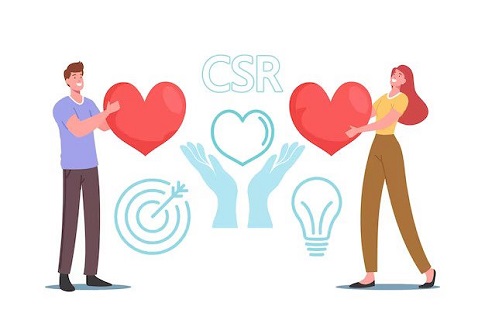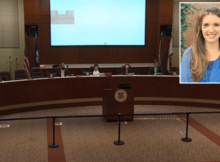-
Table of Contents
- Introduction
- How to Develop Accountability in Relationships: A Guide to Taking Responsibility for Your Actions
- The Benefits of Practicing Accountability in Relationships: Why Taking Responsibility Matters
- The Power of Apologizing: How to Take Responsibility for Your Mistakes in Relationships
- The Impact of Accountability on Relationship Satisfaction: How Taking Responsibility Can Strengthen Your Bond
- The Role of Accountability in Conflict Resolution: How Taking Responsibility Can Help Resolve Disputes
- Conclusion
“Take Responsibility for Your Relationships: Embrace the Virtue of Accountability!”
Introduction
The Virtue of Accountability in Taking Responsibility for Relationship Actions is an important concept that can help to improve relationships. Accountability is the willingness to accept responsibility for one’s actions and to be held accountable for them. It is a key factor in building trust and respect in relationships. When people are accountable for their actions, they are more likely to take ownership of their mistakes and learn from them. This can lead to better communication, understanding, and ultimately, stronger relationships. Accountability also helps to create a sense of safety and security in relationships, as people know that they can trust each other to be honest and take responsibility for their actions. By taking responsibility for our actions, we can create healthier relationships and foster a sense of mutual respect.
How to Develop Accountability in Relationships: A Guide to Taking Responsibility for Your Actions
We all know that relationships are built on trust and respect. But what happens when one person in the relationship fails to take responsibility for their actions? This can lead to a breakdown in communication and trust, and can ultimately lead to the end of the relationship.
Developing accountability in relationships is essential for a healthy and successful relationship. It means taking responsibility for your actions and being honest with your partner. Here are some tips to help you develop accountability in your relationships:
1. Acknowledge Your Mistakes: It’s important to recognize when you’ve made a mistake and take responsibility for it. This shows your partner that you are willing to take ownership of your actions and that you are willing to learn from them.
2. Communicate Openly: Communication is key in any relationship. Make sure to be open and honest with your partner about your feelings and thoughts. This will help to build trust and understanding between the two of you.
3. Take Responsibility for Your Actions: When something goes wrong, don’t blame your partner or anyone else. Take responsibility for your actions and be willing to make amends.
4. Apologize When Necessary: Apologizing is an important part of taking responsibility for your actions. It shows your partner that you are willing to admit when you’ve made a mistake and that you are willing to make it right.
5. Listen to Your Partner: Listening to your partner is essential for developing accountability in relationships. Make sure to really listen to what they have to say and take their feelings into consideration.
6. Be Open to Feedback: Being open to feedback from your partner is important for developing accountability in relationships. It shows that you are willing to learn from your mistakes and that you are open to constructive criticism.
7. Be Willing to Change: Change can be difficult, but it is necessary for developing accountability in relationships. Be willing to make changes in your behavior and attitude if necessary.
Developing accountability in relationships takes time and effort, but it is essential for a healthy and successful relationship. By following these tips, you can start to take responsibility for your actions and build trust and understanding with your partner.
The Benefits of Practicing Accountability in Relationships: Why Taking Responsibility Matters

Accountability in relationships is an important part of creating a strong, healthy bond. When both partners take responsibility for their actions and words, it helps to build trust and respect. Practicing accountability can also help to reduce conflict and create a more positive atmosphere. Here are some of the benefits of taking responsibility in relationships:
1. Improved Communication: When both partners are accountable for their words and actions, it helps to create an atmosphere of openness and honesty. This can lead to better communication and understanding between the two of you.
2. Increased Trust: When you take responsibility for your mistakes and apologize for them, it shows your partner that you are trustworthy and reliable. This can help to build a strong foundation of trust in the relationship.
3. Reduced Conflict: When both partners are accountable for their words and actions, it can help to reduce conflict. This is because it encourages both of you to take responsibility for your own feelings and actions, rather than blaming each other.
4. Improved Self-Esteem: Taking responsibility for your words and actions can help to boost your self-esteem. This is because it shows that you are capable of making mistakes and learning from them.
Accountability in relationships is an important part of creating a strong, healthy bond. When both partners take responsibility for their actions and words, it helps to build trust and respect. Practicing accountability can also help to reduce conflict and create a more positive atmosphere. Taking responsibility for your words and actions can help to improve communication, increase trust, reduce conflict, and boost your self-esteem. So, why not give it a try?
The Power of Apologizing: How to Take Responsibility for Your Mistakes in Relationships
We all make mistakes in our relationships. It’s part of being human. But when we make a mistake, it’s important to take responsibility for it and apologize. Apologizing can be a powerful tool for healing and restoring trust in a relationship.
When we apologize, we are taking responsibility for our actions and showing our partner that we care about them and the relationship. It’s a sign of respect and humility. It shows that we are willing to take ownership of our mistakes and make amends.
Apologizing can also help us to move on from the mistake and rebuild trust. It can help us to forgive ourselves and our partner, and to move forward in the relationship.
When apologizing, it’s important to be sincere and honest. Acknowledge the mistake and take responsibility for it. Explain how you plan to make it right and how you will prevent it from happening again.
It’s also important to be patient and understanding. Your partner may need time to process the apology and to forgive you. Don’t expect an immediate response.
Finally, it’s important to remember that apologizing doesn’t always mean that the relationship will be restored. It’s a process that takes time and effort. But if you are sincere and honest in your apology, it can be a powerful tool for healing and restoring trust.
The Impact of Accountability on Relationship Satisfaction: How Taking Responsibility Can Strengthen Your Bond
When it comes to relationships, accountability is key. Taking responsibility for your actions and words can help strengthen your bond with your partner and increase your relationship satisfaction.
When you take responsibility for your actions, it shows your partner that you are willing to be honest and open about your mistakes. This can help build trust and create a safe space for both of you to express yourselves. It also shows that you are willing to take ownership of your mistakes and work to make things right.
When you take responsibility for your words, it shows your partner that you are willing to be vulnerable and honest about your feelings. This can help create a deeper connection between the two of you and make it easier to communicate. It also shows that you are willing to take ownership of your words and be accountable for how they affect your partner.
When you take responsibility for your emotions, it shows your partner that you are willing to be open and honest about how you feel. This can help create a deeper understanding between the two of you and make it easier to work through difficult emotions. It also shows that you are willing to take ownership of your emotions and be accountable for how they affect your partner.
Taking responsibility for your actions, words, and emotions can help strengthen your bond with your partner and increase your relationship satisfaction. It shows that you are willing to be honest and open about your mistakes and feelings, and that you are willing to take ownership of them and work to make things right. This can help create a deeper connection between the two of you and make it easier to communicate and work through difficult emotions.
So, if you want to strengthen your bond with your partner and increase your relationship satisfaction, start taking responsibility for your actions, words, and emotions. It may not be easy, but it will be worth it in the end.
The Role of Accountability in Conflict Resolution: How Taking Responsibility Can Help Resolve Disputes
Conflict resolution is an important part of any relationship, whether it’s between family members, friends, or colleagues. Taking responsibility for our actions is a key factor in resolving disputes and restoring harmony.
When we take responsibility for our actions, we are acknowledging that we have done something wrong and are willing to make amends. This can be a difficult step to take, but it is essential for resolving conflicts. Taking responsibility shows that we are willing to listen to the other person’s perspective and take their feelings into account. It also shows that we are willing to make changes in our behavior in order to improve the situation.
When we take responsibility for our actions, we are also showing that we are willing to accept the consequences of our actions. This can be difficult, but it is necessary in order to move forward. We must be willing to accept the consequences of our actions, even if they are unpleasant. This can help us to learn from our mistakes and prevent similar conflicts from occurring in the future.
Taking responsibility for our actions can also help to restore trust in a relationship. When we take responsibility for our actions, we are showing that we are willing to be accountable for our behavior. This can help to rebuild trust and create a more positive atmosphere in the relationship.
Finally, taking responsibility for our actions can help to create a sense of mutual respect. When we take responsibility for our actions, we are showing that we are willing to listen to the other person’s perspective and take their feelings into account. This can help to create a more respectful and understanding atmosphere in the relationship.
In conclusion, taking responsibility for our actions is an important part of conflict resolution. It shows that we are willing to listen to the other person’s perspective and take their feelings into account. It also shows that we are willing to accept the consequences of our actions and rebuild trust in the relationship. Finally, it can help to create a sense of mutual respect and understanding. Taking responsibility for our actions is an essential part of resolving conflicts and restoring harmony.
Conclusion
The Virtue of Accountability in Taking Responsibility for Relationship Actions is an important concept that can help to strengthen relationships and create a healthier environment for all involved. It is important to remember that accountability is not about blame or punishment, but rather about taking ownership of one’s actions and being willing to make changes when necessary. By taking responsibility for our actions, we can create a more positive and productive relationship dynamic. Ultimately, accountability is a key factor in creating and maintaining healthy relationships.





